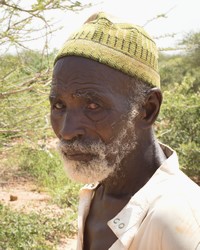Zarma in Niger

Photo Source:
Global Landscapes Forum - Flickr
Creative Commons
|
Send Joshua Project a map of this people group.
|
| People Name: | Zarma |
| Country: | Niger |
| 10/40 Window: | Yes |
| Population: | 5,066,000 |
| World Population: | 5,263,000 |
| Primary Language: | Zarma |
| Primary Religion: | Islam |
| Christian Adherents: | 0.20 % |
| Evangelicals: | 0.10 % |
| Scripture: | Complete Bible |
| Ministry Resources: | Yes |
| Jesus Film: | Yes |
| Audio Recordings: | Yes |
| People Cluster: | Songhai |
| Affinity Bloc: | Sub-Saharan Peoples |
| Progress Level: |
|
Introduction / History
Traditionally the ethnic affiliation of the Zarma-Songhai determined their occupation, and these traditions have not completely died out. The Wogo are fishermen, for example, while the Zarma and the Dendi are farmers. The Songhaï were traditionally warriors and still claim a more noble and aristocratic background than other Zarma speakers. The Zarma people are the second largest people group in Niger. They also live in a few other West African countries.
What Are Their Lives Like?
Zarma men take more than one wife if they are able to pay the bride-price. An agricultural people, they favor large families where all members contribute to manual fieldwork. The Zarma primarily grow millet and corn, though they have also learned to grow garden vegetables during the colder months of the year. They often keep animals such as chickens, guinea hens, sheep, goats and donkeys. They sometimes hire Fulani shepherds to watch over the family cows.
In a changing modern society some Zarma have taken advantage of educational opportunities and wider career choices in politics, education and business.
Women wear colorful cloth sown into long blouses worn over a length of cloth wrapped around them as a skirt. They wear scarves to cover their heads, more devout women also wear another veil over the headscarf. Men wear cotton trousers with a long shirt or robe. They often wear a cap as well. Facial scars tell of a person's ethnic affiliation, and often of their native region.
The Zarma are resilient and astute survivors of the dry climate and poor soil of their Sahelian region. They demonstrate a shrewdness in their dealings that can cross the line into devious behavior.
What Are Their Beliefs?
Zarma are nominally Muslim, though they continue to indulge in animistic practices and sorcery. Many young people are not necessarily attached to Islam, but social pressure keeps them from leaving the religion of their families. There have been Christian missionaries working among the Zarma since the 1930s, yet there have been relatively few converts, and much divisiveness in the young church.
What Are Their Needs?
Most rural African peoples like the Zarma need clean water to drink. Water often contains harmful bacteria which cause sickness and disease.
Prayer Points
Pray for Zarma family leaders to have dreams and visions that will open their hearts to the Lord of lords.
Pray for an intense longing for spiritual truth that will lead them to the cross and the empty grave.
Pray for Zarma disciples who will make more disciples.